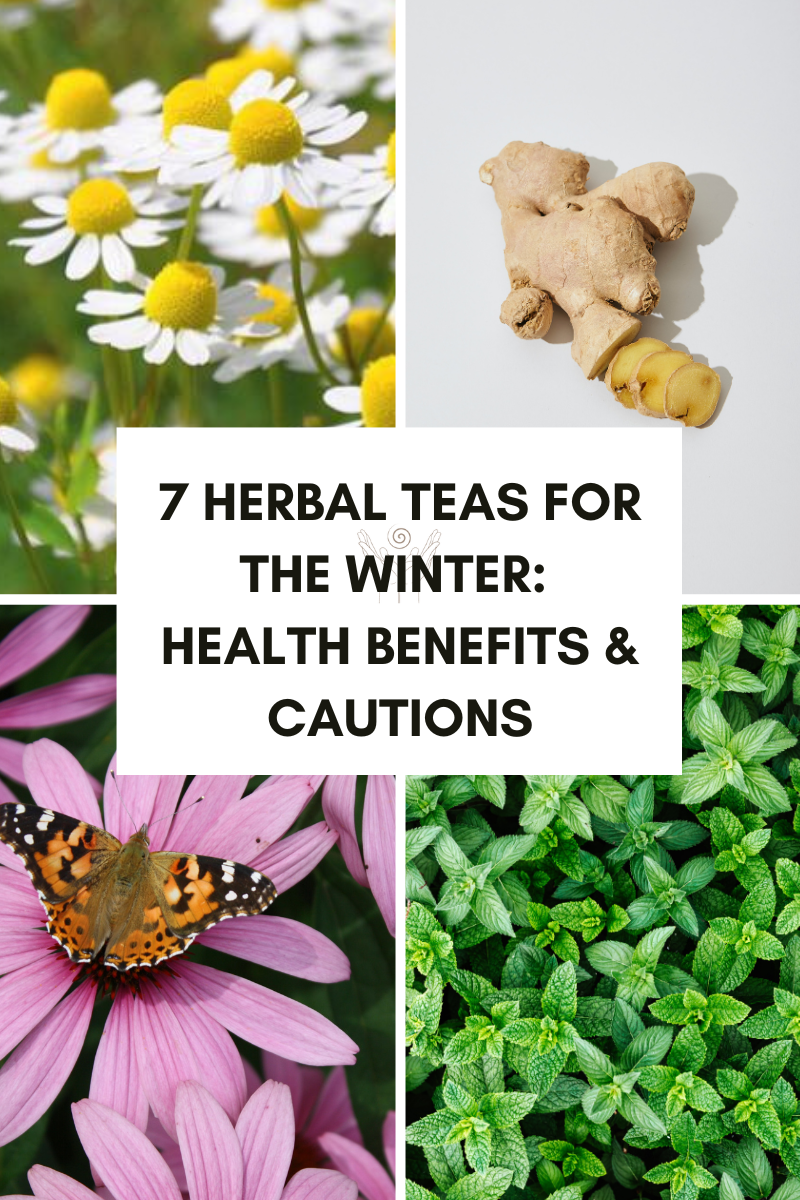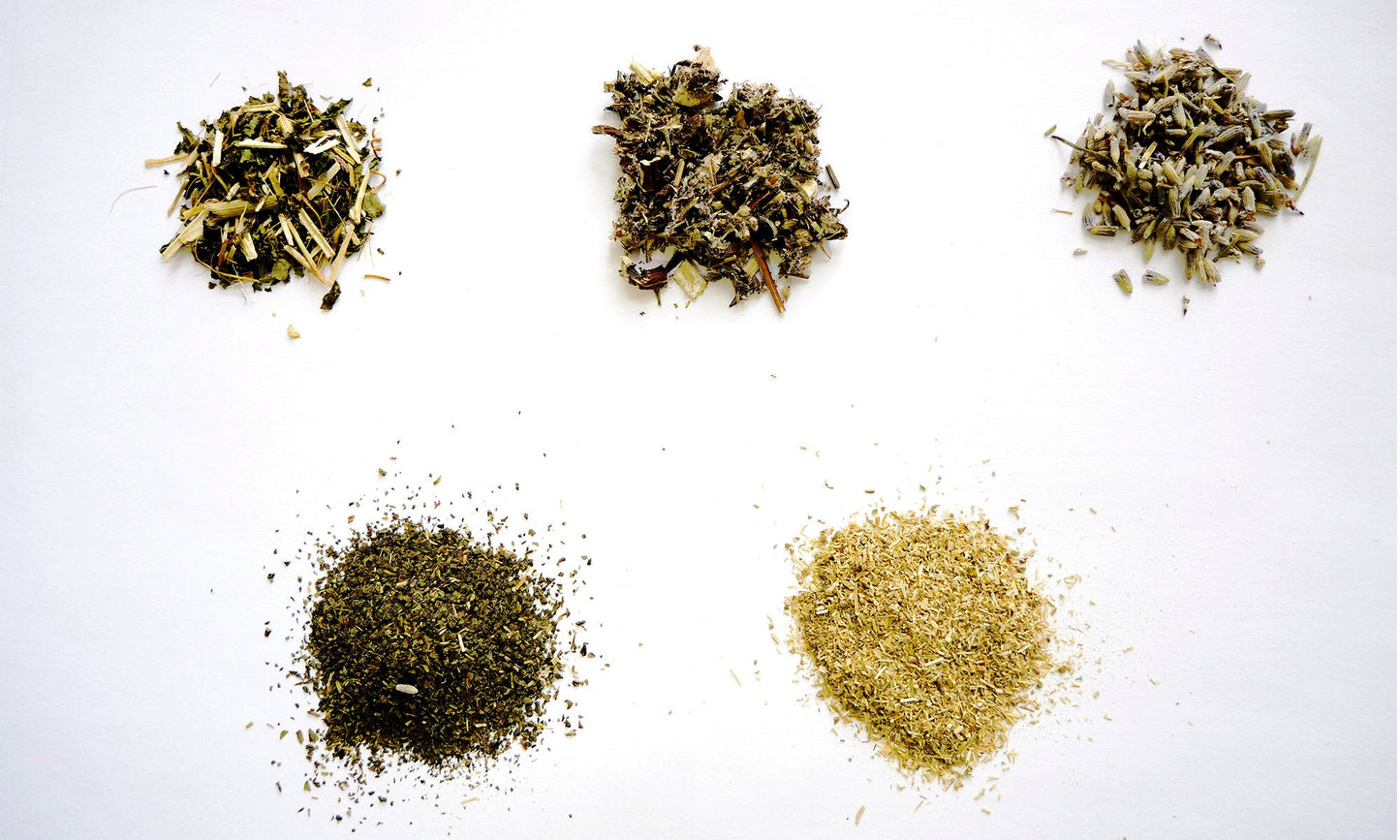
7 Herbal Teas for The Winter: Health Benefits & Cautions
Hey friends,
Winter is the perfect time to cosy up with a warm cup of herbal tea. Not only do herbal teas provide comfort and warmth, but they also offer a range of health benefits. In this blog post, we will explore seven herbal teas that are perfect for the winter season. Each tea has health benefits, and cautions to keep in mind. So, grab your favourite mug and let's dive into the world of herbal teas!
1. Chamomile Tea
Chamomile tea has been used for centuries due to its calming properties. It is derived from the chamomile flower and has a mild, floral flavour. This tea is known to promote relaxation, reduce anxiety, and aid in sleep. Do not consumed this herb if you have a ragweed allergy.
2. Peppermint Tea
Peppermint tea is a refreshing and invigorating herbal tea. It is made from the leaves of the peppermint plant and has a cooling menthol flavour. Peppermint tea is known to soothe digestive issues, relieve headaches, and improve focus. It is important to note that peppermint tea may interact with certain medications, and cause a bit of gas.

3. Ginger Tea
Ginger tea is a warming and spicy herbal tea that is perfect for the winter season. It is made from the root of the ginger plant and has a zesty flavour. Ginger tea is known for its anti-inflammatory properties, aiding digestion, and relieving nausea. Individuals with gallstones or taking blood-thinning medications should avoid consuming excessive amounts of ginger tea.
4. Echinacea Tea
Echinacea tea is derived from the purple coneflower and has a slightly bitter taste. It has been used for centuries to boost the immune system and fight off colds and flu. Echinacea tea is also known for its anti-inflammatory properties and can help reduce symptoms of respiratory infections. There isn't much research on the affects of the herb on people with auto-immune disease so speak with your doctor or a qualified herbalist first.

5. Lemon Balm Tea
Lemon balm tea is a citrusy and refreshing herbal tea. It is made from the leaves of the lemon balm plant and has a mild lemon flavour. This tea is known for its calming effects, reducing stress and anxiety. Lemon balm tea is also believed to improve cognitive function and promote a sense of well-being. Sadly, if you have suffer from hypothyroidism then avoid consuming excessive amounts of lemon balm tea.
6. Hibiscus Tea
Hibiscus tea is a vibrant and tangy herbal tea made from the dried petals of the hibiscus flower. It has a tart flavour and is rich in antioxidants. Hibiscus tea is known to lower blood pressure, improve heart health, and support weight loss. Individuals with low blood pressure should consume hibiscus tea in moderation.
7. Rooibos Tea
Rooibos tea, also known as red bush tea, is a caffeine-free herbal tea that originates from South Africa. It has a sweet and nutty flavour, making it a delightful winter beverage. Rooibos tea is rich in antioxidants, promotes healthy skin, and may help with digestion. It is a great alternative for individuals looking to reduce their caffeine intake.

Don't forget to follow us on social media @twowardsthreedom for the latest updates and promotions. Stay warm and enjoy the wonderful world of herbal teas this winter!


